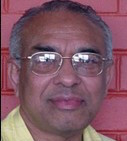Need & Role Of A Sixth Estate

 From democracy to authoritarianism and tyranny, and from welfarism, dirigisme and cronyism to free market and kleptocracy, Sri Lanka, by stages, is fast descending to a kakistocracy. The question facing the nation is how to halt this slippery slide and reverse the trend. In concluding another of her brilliant piece, “In the Springtime of Tyrants”, Tisaranee Gunasekera notes, “The solution is not to push more people into the hands of would-be autocrats waiting in the wings. The solution is to do something in the here and now to improve living conditions of the masses and, through such concrete actions, to reignite hope of a better tomorrow.” Here is the challenge and the issue is the ways and means of achieving that objective.
From democracy to authoritarianism and tyranny, and from welfarism, dirigisme and cronyism to free market and kleptocracy, Sri Lanka, by stages, is fast descending to a kakistocracy. The question facing the nation is how to halt this slippery slide and reverse the trend. In concluding another of her brilliant piece, “In the Springtime of Tyrants”, Tisaranee Gunasekera notes, “The solution is not to push more people into the hands of would-be autocrats waiting in the wings. The solution is to do something in the here and now to improve living conditions of the masses and, through such concrete actions, to reignite hope of a better tomorrow.” Here is the challenge and the issue is the ways and means of achieving that objective.
In the current national political climate the two contending groups, RW-MS lose and bickering coalition and MR led JO are the same wine in different bottles. Both are prisoners of an economic paradigm that has the least interest in and therefore no solution to the deteriorating living conditions of the third estate, other than to sing the chorus of the so called ‘trickle-down’ effect of a free market economy. Both groups have benefited from corruption and lawlessness and none of them has released any policy measure to stop these evils. Both have mortgaged the country to foreign capital and institutions, and to service the mounting debt they have no remedy but to borrow more. Finally, both have resorted to and are prepared to deploy again the communal card to win electoral contests. To undercut the rising popularity of far right elements such as JHU and BBS, mainstream parties are absorbing parts of the far right agenda. In such a situation what hope is there for the masses to expect relief by electing either of them in the next election? Should they vote at all?
Sri Lanka is not alone in adopting this strategy. We witness the same trend in the US, UK, Europe and Australia. The so called national security and border protection programs championed by these governments and the main opposition is to add respectability to and absorb the anti-immigration and xenophobic policies of the far right, which are fast eroding into the traditional vote banks. On the economic front there is hardly any difference between the government and opposition. Both are wedded to the neoliberal economic paradigm and any difference between the two is only marginal and cosmetic. The interest of the third estate has been sacrificed to the benefit of capital. Even here there is a desperate need for a third alternative.
In the political and economic chaos that prevails in Sri Lanka at the moment, the search for a third alternative is imperative. That search is the task of the sixth estate, which includes observers and critics who are a counterweight to the fourth and fifth estates, i.e., mainstream media and the social media respectively. The sixth estate can include individuals as well as institutions such as NGOs and civil society groups. Moderate and enlightened religious dignitaries like the Venerable Galkande Dhammananda Thera of the Walpola Rahula Institute are also part of this estate. Sri Lanka’s sixth estate is of a sizeable proportion, thanks to seventy years of educational progress under free education. This estate has to organize itself under one umbrella and promote an agenda for the third alternative. Each of us has an innate ability to contribute to change. It is this contribution that enriches human history and civilization.

